
Do you have what you need to make your garden grow?


Garden Center
Store Hours
Mon-Sat:
6:00am - 10:00pm
Sun:
8:00am - 8:00pm
Curbside:
09:00am - 6:00pm
Location
Popular at Your Garden Center
Trending Garden Supplies in May
Trending Live Plants
Garden Project Calculators
;Resize=(703,395.44))
Grass Seed Calculator
When you're ready to seed your lawn, our calculator helps you estimate the amount of grass seed you'll need to get the job done.
;Resize=(703,395.44))
Mulch Calculator
Enter your preferred material, the square footage and mulch depth of the coverage space for accurate results.
;Resize=(703,395.44))
Fencing Calculator
We'll calculate the amount of fencing you should purchase based on your property needs.
Shop Outdoor and Garden Brands
Frequently Asked Questions About Gardening
What planting zone am I in?
Check the USDA growing zone map, as planting zones have shifted over the years. Planting zones with higher numbers can plant earlier in the year. Choose plants that are meant for your zone and increase your odds of successful gardening.
Can I plant seeds directly in the ground?
If the ground isn't frozen solid and the soil isn't cold, consider planting your veggie, flower, or fruit seeds directly into your garden. This is called the "direct sow" method. The time to plant will be after the threat of frost is gone for the season, as seedlings and sprouts can't weather those conditions. You can also start your seeds indoors if you'd like. Consult your seed envelope for how and when to sow seeds.
Do you carry organic seeds and plants?
Yes, we've got a variety of organic options, including organic fruit seeds and veggie seeds, as well as organic flower and herb seeds that are subject to availability. We carry the organic soil to plant them in as well as the organic fertilizer to feed your plants.
Do I have to harden off my seedlings before planting them outside?
Yes, if you raised plants indoors from seeds in your own plant nursery, harden them before you transplant them. Hardening is the process of getting them used to outdoor life and the fluctuating spring weather. It slows their growth until they're strong and ready to take off during a spring warm front. Hardening also makes your plants more resilient to a sudden cold snap. Read your seed packets or speak to a garden center associate for more information.
How do I prep for planting seeds or transplants outside?
Before you plant, make sure that the soil is healthy, it's warm enough outside, and your plant will have the right amount of sun. Check your seed packet to see if it likes shade, full sun, or partial sun, as well as what time of year it should be planted. Space your plants as described for best results so your plant babies have room to flourish.
Should I use peat moss starters or coir starters?
Seed starters, full of nutrients in convenient pellets or pots, work for new and experienced gardeners. You don't have to use these starters if you're planting in soil, but you may want to. Starting seeds in peat pots works best for delicately rooted plants like carrots and beets, as well as flowers that need acidic soil. Some people prefer coir starters instead, as they have a neutral pH. Check what type of soil your plants need to help narrow it down, and chat with a garden center associate if you need more info.
Garden Project Ideas
The Home Depot Garden Center at N Kansas City
Celebrate Springtime Gardening
On beautiful spring days, tidy the yard before everything blooms in earnest. Many people feel inspired to refresh their outdoor space for entertaining as well. Don't forget to sweep out the gazebo and clean the shed in preparation for spring, too. No matter what outdoor projects you choose to tackle and which plants you need, you'll find that The Garden Center in N Kansas City is your local plant nursery to help you enjoy your spring activities to the fullest.
Plant Hardiness Zones Explained
The first thing you should know when planting veggies, spring flowers, and other seeds is your planting zone. Every location in the U.S. and its territories is sorted into blocks by climate. Find your zone on the USDA planting zone map and learn when to plant seeds.
For example, you could plant bell pepper seedlings outdoors in mid-March in Zone 10, but not until the end of May in Zone 4. The plants that'll thrive in your area are in your zone — plus all the zones numbered less than that. In other words, a Zone 9 garden can support plants listed as Zones 1–9. You can plant seeds indoors roughly a month before you can plant them outside, known as direct sow. Read your seed packet for details. If you start them later than recommended, it's not ideal, but it should even out as time passes.
Gardening in Your Growing Zone
Much of the Great Plains and Upper Midwest is in Zones 3 through 5. Your best bets for veggies will be root vegetables like beets and carrots, leafy greens including lettuce, and cruciferous veggies like cabbage and kale. You can try squash, too. If you plant outside, prepare for additional warming upkeep when late frost is forecast. Planting dates are similar to Zone 4, that is to say, the target is mid-March through May 1st, depending on whether you're starting your seeds indoors or directly sowing them into your garden.
The state of Kansas and slightly north of the state line is in Zone 6, so planting can begin earlier there than farther north. The outdoor growing season doesn't kick off until mid-March or even April, although you can start some veggies by seed halfway through February. Tomatoes, peppers, cucumbers, squash, onions, and other classic garden crops will do well in this region, and most of them can get an early jump on growing indoors before spring really moves in.
Start Seeds Indoors
Save money when you grow your garden from seeds by starting them indoors in your own plant nursery. We've got all the seed starter supplies you'll need. Veteran planters and new gardeners alike should disinfect seed trays with a watered-down bleach solution before reusing them each year. When your trays or pots are prepared, plant your seeds. As for the soil, test the mineral levels and pH to find if it needs amendments or additives. Soil pH differs among regions, and what your plants need depends on what you're growing. Most vegetable plants like a pH of 5.5–7.5. Soil amendments can tip the balance of your soil in a direction that'll help your plants.
Measure your finger to use it as a ruler. In general, you'll plant 3–5 seeds, then press them into the soil to the depth you need with your finger. Mark where you planted the seeds with a plant tag or toothpick. Otherwise, it'll be a surprise when the sprouts push out of the soil.
Sprouts
Prepare your seed sprouts for outdoor life while they're still indoors. These inch-tall micro-seedlings are fragile but resilient. Seedlings don't get all this pampering in nature when they volunteer and grow wherever they please, so they can handle more than you think. However, don't go overboard, as your sprouts are still babies. You can even use an oscillating floor fan on low to mimic the wind and strengthen their stems.
Harden Your Seedlings
When you're hardening your sprouts and gradually introducing them to the outdoors, be flexible. Keep an eye on your baby plants. If they're looking rough, don't push them. It’s ok to roll back a step or two if need be: Bring them inside overnight or put them in shady places instead of direct sun. As always, make sure they're watered enough. Take wilted plants inside and give them a good drink, making sure they're strong before returning them outdoors.
Transplant Young Plants Into Their New Homes
You've raised your baby plants from seeds, watched them sprout, and carefully hardened them off to brave Mother Nature. By now, your plants have three or four real leaves — they'll look different from the miniature seedling leaves. When the ground is warm, and you're not expecting soaking rain, look into transplanting your big sprouts into their new outdoor home. "Transplant" means that you put these small plants straight into the garden soil or into pots. In cases where you directly planted into the ground, you may still want to shuffle plants around for the best sun and spacing. That's also a transplant situation, as is repotting plants into larger pots.
Protect Your Garden With Mulch
Finish your flower bed with compost and mulch. Compost enriches the soil so your garden can grow even better. It may help foster larger and stronger plants that bear more fruit and flowers. Mulch keeps your soil from drying out and controls weeds. Compost and mulch can be purchased in-store or created at home. The next time you're looking for "mulch near me," stop by the Garden Center to get the right amount.
Greet the Spring
Early spring is an exciting time in the world of gardening. Plan your garden and landscaping, prepare to fertilize your lawn, and browse The Home Depot nursery to find inspiration on what to plant when the weather warms. For those without lawns, consider adding artificial grass, a pellet grill, or an outdoor rug to your balcony or patio. Shop for the seeds, fertilizer, and soil you need in the aisles of your N Kansas City Garden Center, online, or on our mobile app. Let's get growing together.
Nearby Stores
Find Another Store
4949 Old Pike Rd
Gladstone, MO 64118
6.18 mi
Mon-Sat: 6:00am - 10:00pm
Sun: 8:00am - 8:00pm
8598 N Church Rd
Kansas City, MO 64157
10.43 mi
Mon-Sat: 6:00am - 10:00pm
Sun: 8:00am - 8:00pm
5000 S 4th St
Leavenworth, KS 66048
13.37 mi
Mon-Sat: 6:00am - 9:00pm
Sun: 8:00am - 8:00pm
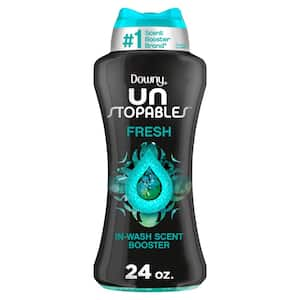
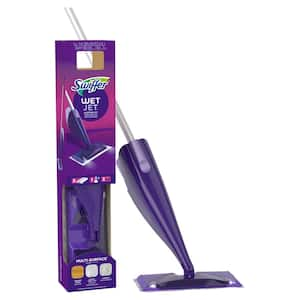
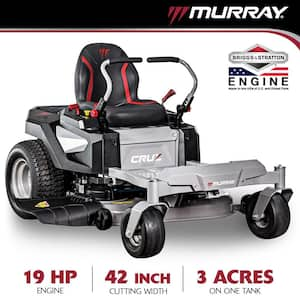
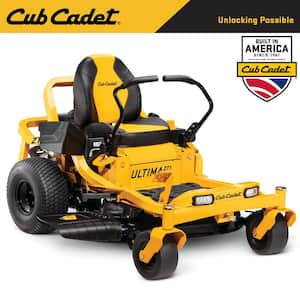
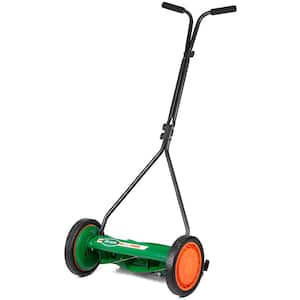
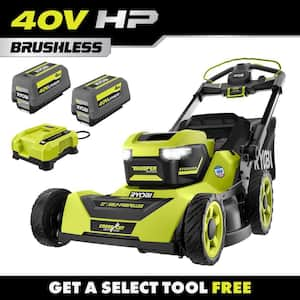
)
)
/17_514245_S_012_Product%20Image%20(square).jpg?im=Resize=(300,300))
;Resize=(300,300))
)
)
)
)
)
/2023_P2_Rain_Barrels_Product%20Image%20(square).jpg?im=Resize=(300,300))
)
;Resize=(300,300))
;Resize=(300,300))
;Resize=(300,300))
/12_SOIL_B_0420_Social%20media%20(square).jpg?im=Resize=(300,300))
;Resize=(300,300))
)
)
;Resize=(300,300))
;Resize=(300,300))
;Resize=(300,300))
;Resize=(300,300))
)
)
;Resize=(300,300))
;Resize=(300,300))
;Resize=(300,300))
;Resize=(300,300))
;Resize=(300,300))
)
/18Patio_Camden_Seagrass_5pcSeating_Planters_302468736_DTL3_L_Social%20media%20(square).jpg?im=Resize=(300,300))
;Resize=(300,300))
;Resize=(300,300))
;Resize=(300,300))
)
;Resize=(300,300))
;Resize=(300,300))
)
;Resize=(300,300))
)
.jpeg?im=Crop,rect=(363.69230769230774,1.2307692307692308,958.7692307692308,958.7692307692308);Resize=(300,300))
;Resize=(300,300))
)
;Resize=(300,300))
;Resize=(300,300))
)
;Resize=(300,300))
)
)
;Resize=(300,300))
;Resize=(300,300))
)
)
;Resize=(300,300))
)
;Resize=(300,300))
;Resize=(300,300))
)
)
;Resize=(300,300))
)
)
/Capello_Spring_Mum_10in_Social%20media%20(square).jpg?im=Resize=(300,300))
;Resize=(300,300))
)
)
;Resize=(300,300))
)
)
;Resize=(300,300))
)
)
;Resize=(300,300))
;Resize=(300,300))











































